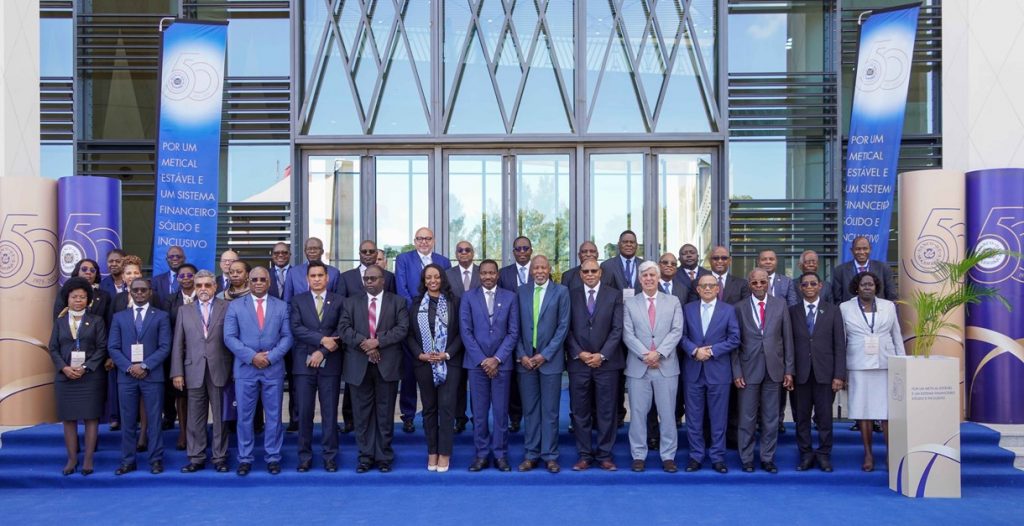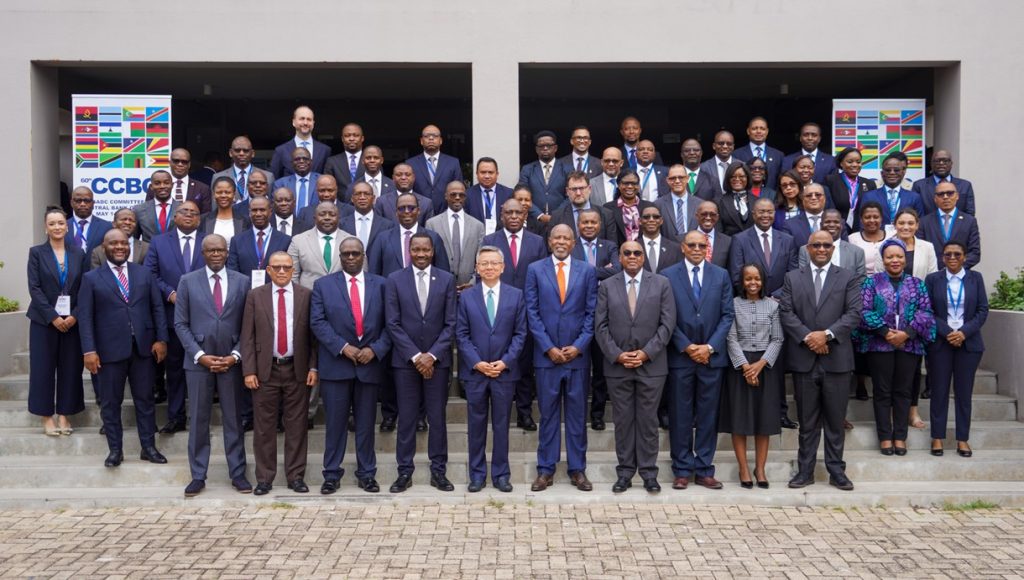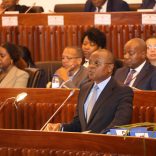TICAD: Japan to announce plan to accelerate Nacala Corridor development, designate four Japanese ...
Bank of Mozambique holds international symposium to mark its 50th anniversary

Photo: Banco de Moçambique
Under the theme “Credibility of Central Banks and Monetary Policy”, the Bank of Mozambique on Saturday (17-05) held an international symposium at the Mozambique-China Cultural Centre in Maputo to mark its 50th anniversary, which it is celebrating today.
In his opening speech, Rogério Zandamela said that credibility was not simply related to reputation, but was a strategic asset that allowed central banks to anchor inflation expectations, promote the stability of financial systems and achieve monetary policy goals with greater precision and impact.
“When a central bank is truly trustworthy, its statement is not just an announcement, but also a signal that shapes behaviour in families, markets and institutions,” said Rogério Zandamela, for whom the Bank of Mozambique has always played a central role in shaping the country’s economic trajectory, even in complex environments.
According to the governor, credibility is a challenge for central banks, as it requires an appropriate legal framework, consistency and transparency in action, with a view to achieving the proposed objectives.
On the other hand, given that credibility is an extremely sensitive and critical area, “we made the decision to bring in guests who could share with us their vision, knowledge and experiences on how they have been dealing with this matter, so that we can gather insights from them that can support us in the ongoing and difficult process of establishing the credibility of the Bank of Mozambique”.
The speakers at the event were unanimous in considering credibility an asset for the effectiveness of monetary policy, serving as an anchor for the expectations of economic agents regarding the trajectory of inflation.

The symposium was attended by central bank governors, speakers of high professional and intellectual merit, representatives of national and international financial institutions, members of the government and of the board of directors, together with managers and officials from the Bank of Mozambique.
60th CCBG Meeting
Meanwhile, on Friday (16-05), at the Montebelo Indy Village Congress Hotel, the Bank of Mozambique hosted the 60th Annual Meeting of the SADC Committee of Central Bank Governors (CCBG), an event that was part of the central bank’s 50th anniversary celebrations
In his welcoming speech as host, the Governor of the Bank of Mozambique, Rogério Zandamela, reviewed the country’s macroeconomic situation, marked by global and national adversities, which caused a slowdown in economic activity from 5.4% in 2023 to 1.9% in 2024, the latter year deeply affected by post-election tensions, which led to the partial halt of national production in different sectors of the national economy.
On the occasion, Rogério Zandamela said that, despite the adversities, the central bank was able to fulfil its main mandate, which is to maintain price stability, reflecting “the adoption of a prudent stance in the conduct of monetary policy, exchange rate stability and the stability of international prices of supplies and fuels”.
Regarding projections, Rogério Zandamela expects that, in the medium term, inflation will remain in the single-digit range, in a context of moderate growth, reflecting the cycle of monetary policy easing and the resumption of strategic projects in the mining, energy and logistics sectors.
In the context of the SADC region, the governor highlighted Mozambique’s efforts to pursue regional macroeconomic convergence goals, which, as he said, requires additional efforts in view of regional and global challenges associated with low economic diversification, high dependence on the public sector, public infrastructure deficit, among others.
The event was opened by Lesetja Kganyago, Governor of the South African Reserve Bank, in his capacity as acting president of the CCBG. In his speech, Kganyago remarked that the region’s central banks needed to improve cooperation to make common development efforts more effective, in a context marked by high levels of debt, trade wars and new global dynamics resulting from the recent political stance of the US government.














Leave a Reply
Be the First to Comment!
You must be logged in to post a comment.
You must be logged in to post a comment.